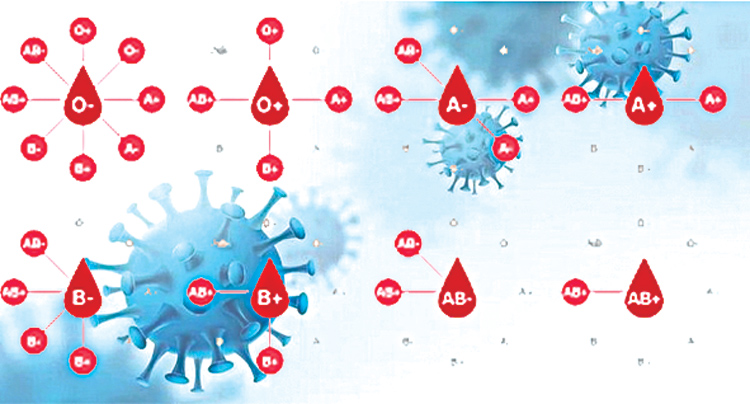New Delhi, Nov 30 (Bureau) An original research by a leading private hospital in Delhi has found that blood groups A, B and Rh+ are more susceptible to COVID-19 infection whereas O, AB and Rh- are at lower risk of COVID-19 disease. However, no association was found between blood groups and susceptibility to the severity of disease as well as mortality, the research stated. “An original research conducted by Department of Research and Department of Blood Transfusion Medicine at Sir Ganga Ram Hospital (SGRH) has found that blood groups A, B and Rh+ are more susceptible to COVID-19 infection whereas O, AB and Rh- are at lower risk of COVID-19 disease. It also found that there is no association between blood groups and susceptibility to the severity of disease as well as mortality,” a statement issued by SGRH said. The study was conducted on a total of 2,586 COVID-19 positive patients tested through real-time PCR who were admitted at SGRH from April 8, 2020, to October 4, 2020, the hospital said.
This research has been published in the November 21 edition of “Frontiers in Cellular and Infection Microbiology”. According to Dr Rashmi Rana, lead researcher and Consultant, Department of Research, SGRH, the purpose of the study was to ascertain the impact of SARS-CoV-2 as a new virus and its impact on individuals having certain blood groups was unknown so far. “Severe acute respiratory syndrome coronavirus 2 is a new virus, and it is unclear whether blood groups have any impact on Covid-19 risk or progression. Therefore, we investigated the association of ABO and Rh blood group with Covid-19 susceptibility, prognosis, recovery time, and mortality in this study.” According to Dr Vivek Ranjan, Co-author of the research and Chairperson, Department of Blood Transfusion at SGRH, male patients of blood group B were found more prone to COVID-19 than the female patients with blood group B while Blood Group AB was observed to be more susceptible to infection in patients with the age group of 60 and above.
“Our study also found that Blood Group A and Rh + types are associated with a decrease in the recovery period, whereas Blood Group O & Rh- are associated with an increase in the recovery period. However, the ABO and/or Rh blood groups may not be responsible for this association, as these may indicate an unexplored underlying factor like co-morbidity,” he said. However, Ranjan also said that larger, multicenter, and prospective studies are needed to ascertain the relationship between blood groups and SARS-CoV-2.

